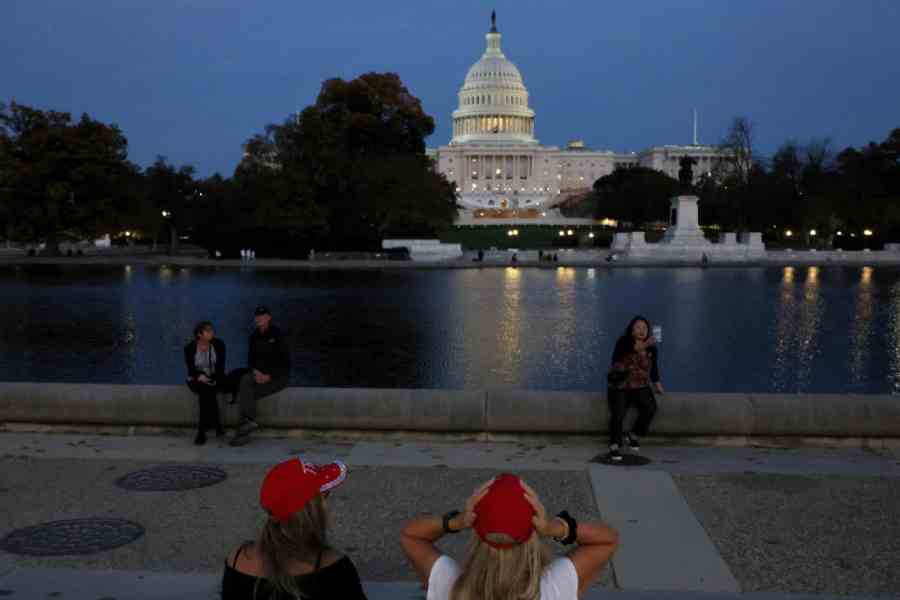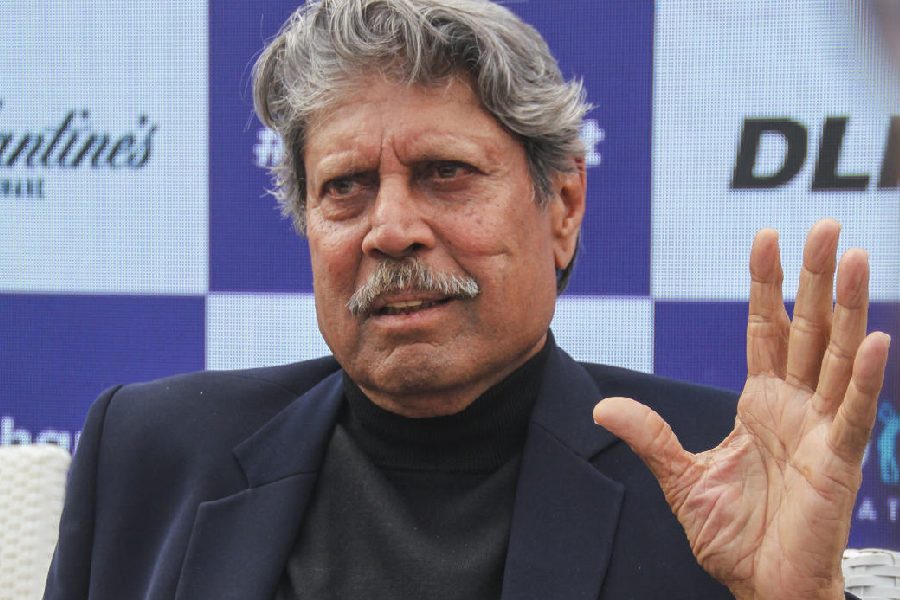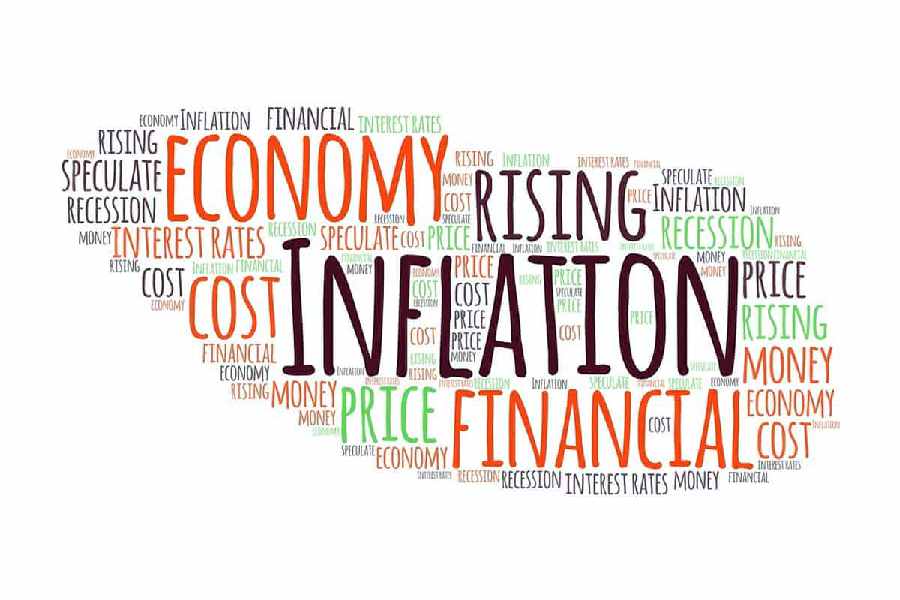In her closing rally on the Ellipse last week, Kamala Harris scorned Donald J. Trump as an outlier who did not represent America. “That is not who we are,” she declared.
In fact, it turns out, that may be exactly who we are. At least most of us.
The assumption that Trump represented an anomaly who would at last be consigned to the ash heap of history was washed away on Tuesday night by a red current that swept through battleground states — and swept away the understanding of America long nurtured by its ruling elite of both parties.
No longer can the political establishment write off Trump as a temporary break from the long march of progress, a fluke who somehow sneaked into the White House in a quirky, one-off Electoral College win eight years ago. With his comeback victory to reclaim the presidency, Trump has now established himself as a transformational force reshaping the US in his own image.
Populist disenchantment with the nation’s direction and resentment against elites proved to be deeper and more profound than many in both parties had recognised. Trump’s testosterone-driven campaign capitalised on resistance to electing the first woman President.
And while tens of millions of voters still cast ballots against Trump, he once again tapped into a sense among many others that the country they knew was slipping away, under siege economically, culturally and demographically.
To counter that, those voters ratified the return of a brash 78-year-old champion willing to upend convention and take radical action even if it offends sensibilities or violates old standards. Any misgivings about their chosen leader were shoved to the side.
As a result, for the first time in history, Americans have elected a convicted criminal as President. They handed power back to a leader who tried to overturn a previous election, called for the “termination” of the Constitution to reclaim his office, aspired to be a dictator on Day 1 and vowed to exact “retribution” against his adversaries.
“The real America becomes Trump’s America,” said Timothy Naftali, a presidential historian at Columbia University. “Frankly, the world will say if this man wasn’t disqualified by January 6 (2021, when the Capitol was attacked), which was incredibly influential around the world, then this is not the America that we knew.”
To Trump’s allies, the election vindicates his argument that Washington has grown out of touch, that America is a country weary of overseas wars, excessive immigration and “woke” political correctness.
“The Trump presidency speaks to the depth of the marginalisation felt by those who believe they have been in the cultural wilderness for too long and their faith in the one person who has given voice to their frustration and his ability to centre them in American life,” said Melody C. Barnes, the executive director of the Karsh Institute of Democracy at the University of Virginia and a former adviser to President Barack Obama.
Rather than be turned off by Trump’s flagrant, anger-based appeals along lines of race, gender, religion, national origin and especially transgender identity, many Americans found them bracing. Rather than be offended by his brazen lies and wild conspiracy theories, many found him authentic. Rather than dismiss him as a felon found by various courts to be a fraudster, cheat, sexual abuser and defamer, many embraced his assertion that he has been the victim of persecution.
“This election was a CAT scan on the American people, and as difficult as it is to say, as hard as it is to name, what it revealed, at least in part, is a frightening affinity for a man of borderless corruption,” said Peter H. Wehner, a former strategic adviser to President George W. Bush and vocal critic of Trump. “Donald Trump is no longer an aberration; he is normative.”
The fact that Trump was able to bounce back from so many legal and political defeats over the past four years, any one of which would have been enough to wreck the career of any other politician, was a testament to his remarkable resilience and defiance. He is unbowed and, this time at least, undefeated.
It also owed in part to failures of President Joe Biden and Harris, his Vice-President. Trump’s victory was a repudiation of an administration that passed sweeping pandemic relief, social spending and climate change programmes but was hobbled by inflation and illegal immigration, both of which were brought under control too late.
Moreover, Biden and Harris never managed to heal the divisions of the Trump era as promised, though it may never have been possible. They could not figure out how to channel the anger that propels his movement or respond to the culture wars he fosters.
Once she took the torch from Biden, Harris initially emphasised a positive, joy-filled mission to the future, consolidating excited Democrats behind her, but it was not enough to win over uncommitted voters.
At that point, she switched back to Biden’s approach of warning about the dangers of Trump and the incipient fascism she said he represented. That was not enough either.
“The coalition that elected them wanted them to unite the country, and they failed to do so,” said former Representative Carlos Curbelo, a Republican from Florida. “Their failure has resulted in further disillusionment with our country’s politics and empowered the Trump base to give him another narrow victory after setbacks in three consecutive general elections.”
Harris did preach unity in her closing days, but her “we are all in this together” message of harmony fell short against Trump’s “fight, fight, fight” message of belligerence. As much as anything, the election reinforced how polarised the country has become, split down the middle. It is a tribal era, an us-versus-them moment, when each side is so divorced from the other that they find it hard to even comprehend each other.
Trump’s political resurrection also highlighted an often underestimated aspect of the 248-year-old American democratic experiment.
For all of its commitment to constitutionalism, the US has seen moments before when the public hungered for a strongman and exhibited a willingness to empower such a figure with outsized authority. That has often come during times of war or national peril, but Trump frames the current struggle for America as a war of sorts.
“Trump has been conditioning Americans throughout this campaign to see American democracy as a failed experiment,” said Ruth Ben-Ghiat, a historian and author of Strongmen: Mussolini to the Present. By praising dictators like President Vladimir V. Putin of Russia and President Xi Jinping of China, she said, “He has used his campaign to prepare Americans for autocracy”.
She cited his adoption of language from Nazi and Soviet lexicons, such as branding opponents as “vermin” and the “enemy from within” while accusing immigrants of “poisoning the blood of our country”, and suggesting that he might use the military to round up opponents. “A victory for Trump would mean that this vision of America — and the recourse to violence as a means of solving political problems — has triumphed,” Ben-Ghiat said.
Others cautioned against assuming Trump would follow through on his most outlandish threats. Marc Short, who was chief of staff to Vice-President Mike Pence and might have reasons to worry given Trump’s anger at him and his former boss, said he was not concerned about a wave of retaliation.
“I don’t believe in that,” he said. “I think there’s a lot of theatre around that more than there is real sort of retribution.” But Short predicted another four years of chaos and uncertainty. “I would anticipate a lot of volatility — personnel but also significant boomerangs on policy,” he said. “Not boomerang from Biden-Harris but boomerang from himself. You’ll have one position one day and another the next.”
Trump’s latest victory also adds ammunition to the argument that the country is not ready for a woman in the Oval Office. Trump, a thrice-married admitted adulterer accused of sexual misconduct by more than two dozen women, has for the second time defeated a woman with more experience in public office than he had. Each of them was flawed, just as male candidates are flawed, but the sense of 2016 déjà vu on the left on Wednesday morning was palpable.
Trump ran a campaign openly aimed at men, featuring Hulk Hogan ripping off his shirt at the Republican National Convention, macho talk at his closing Madison Square Garden rally and even the former President himself seeming to simulate a sex act on a microphone in the final days of the race. On Election Day, Trump’s adviser Stephen Miller posted a message on social media saying, “If you know any men who haven’t voted, get them to the polls.”
According to exit polls, a majority of Harris’s supporters were women while a majority of Trump’s supporters were men. Yet even though most abortion rights referendums were passing in various states on Tuesday, the issue did not galvanise women in the first presidential race since Roe v. Wade was overturned to the extent that Democrats had expected and Republicans feared.
In a sense, Trump’s victory also brings the January 6, 2021, ransacking of the Capitol by a mob of his supporters full circle. The attack, aimed at stopping the finalisation of Biden’s 2020 victory, has now been recast from a deadly assault on democracy that discredited Trump into a patriotic act that will generate pardons promised by the newly re-elected President.
“In many ways, this is the last chapter of the January 6 drama,” said Naftali. “Many Republicans thought they had managed to thread the needle, to avoid pissing off their base while also jettisoning Trump. And it turned out they hadn’t. And now they have him back. And if he wins the bet, and he’s returned to power, then the final verdict of January 6 is that in modern America, you can cheat and the system isn’t strong enough to fight back.”
The defining struggle going forward will be the war that Trump says he will now wage against a system that he deems corrupt. If he follows his campaign promises, he will seek to consolidate more power in the presidency, bring the “deep state” to heel and go after “treasonous” political opponents in both parties and the media.
As he does that, he will have legitimacy and experience that he did not have the last time around. He learned from his first term, not so much about policy, but about how to pull the levers of power. And this time, he will have more latitude, a more aligned set of advisers and possibly both Houses of Congress as well as a party that even more than eight years ago answers solely to him.
The Trump era, it turns out, was not a four-year interregnum. Assuming he finishes his new term, it now looks to be a 12-year era that puts him at the centre of the political stage as long as Franklin D. Roosevelt or Ronald Reagan were.
It is Trump’s America after all.
New York Times News Service











